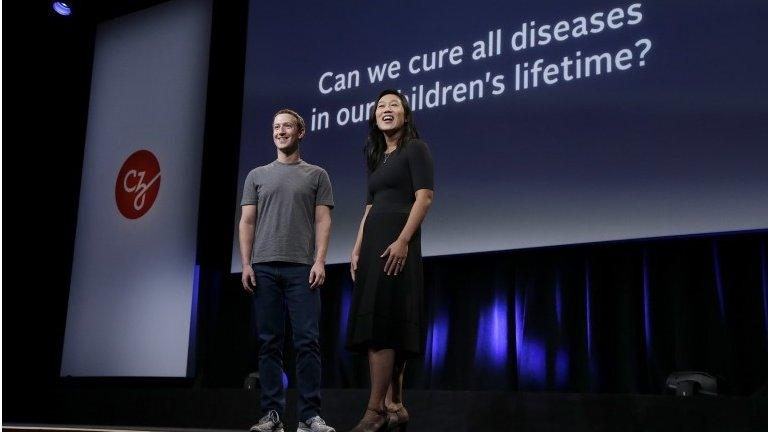Edited highlights of the BBC interview with Mark Zuckerberg
- Published
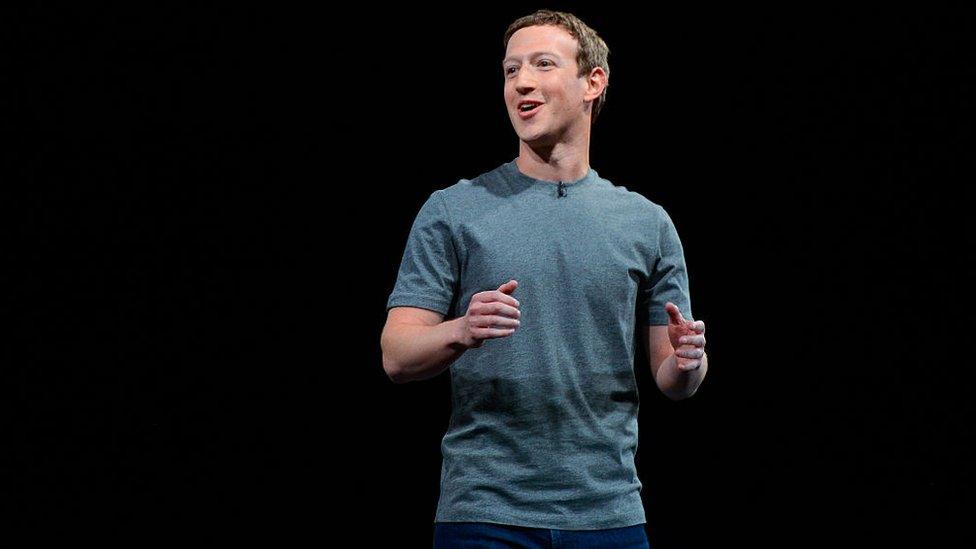
Mark Zuckerberg spoke with the BBC about his open letter on issues facing Facebook and society. Here are the highlights of economics editor Kamal Ahmed's conversation with the Facebook founder.

Future of society
KAMAL AHMED - What sparked this major statement, not just on the future of Facebook, but on the future of society?
MARK ZUCKERBERG - You know I think about this, as for the last 10 years we've really been focusing on connecting friends and family, and now the next focus on top of that is going to be helping to build communities. We think about having this global community, but the social fabric that we have is not one big community. It is millions of small communities and social structures and families that exist - that are really the things that we turn to for our personal and emotional and spiritual needs. And that gives us our sense of hope and purpose in life.
So I think that there is a role that Facebook can play in empowering community leaders, to strengthen existing communities, to help build new communities, to help look out for people in their community, to help keep people safe and to do all the things we are talking about here, but that will take - I think - thinking proactively about building this kind of infrastructure.
And I am inspired by history where humanity has gone through these similar shifts, where we first started building cities - and when we first started building nations with the cities we had - we had to build certain social infrastructure to bring everyone together so we could do more together than individually. Now I think we are in a time like that today, and that's the part that I just want to make sure Facebook plays its part in helping bring people together in that way.
AHMED - Do you feel global businesses like yours that play such a role in our lives culturally, that you have to have a political voice? This is a move into the political sphere.
ZUCKERBERG - One thing I have reflected on is that when I started Facebook, the mission of connecting the world was not controversial. It was kind of as if it was a default assumption that people had - every year the world got more connected - and that seems like the direction that things were heading in. Our vision was really to help connect friends and family and do what we could to help the world move in this direction which seems like the clear consensus of what was good. And now, for a number of reasons, that vision is becoming more controversial.
There are people around the world that feel left behind by globalisation and the rapid changes that have happened, and there are movements as a result to withdraw from some of that global connection. And to me, I think of this as the arch of human progress, where the only way to move forward is to make a community that works for everyone. And to me that's a very fundamental human thing and that has always been the mission. So if anything the world has shifted more than how we have thought about it from the beginning, if that makes sense.

'Important time'
AHMED - What are the reasons - you've touched on globalisation - but what are the other reasons for "connectedness" becoming more controversial?
ZUCKERBERG - I think globalisation is probably the main one. For a couple of decades - maybe longer, maybe three decades - people have really sold this idea that as the world comes together everything is going to get better. I think the reality is that over the long term that will be true and there are pieces of infrastructure that we can build to make sure that a global community works for everyone. But I do think that there are some ways in which this idea of globalisation didn't take into account some of the challenges it was going to create for people along the way, and now I think some of what you see is a reaction to that.
If people are asking the question - is the direction for humanity to come together more or not? - I think that answer is clearly yes. But we have to build the infrastructure to make sure the global community works for everyone. It is not just automatically going to happen. All these different kinds of institutions - whether they are governments or non-profits or companies - need to do their part in building this infrastructure to empower people so that way this creates opportunities for everyone, not just some people.
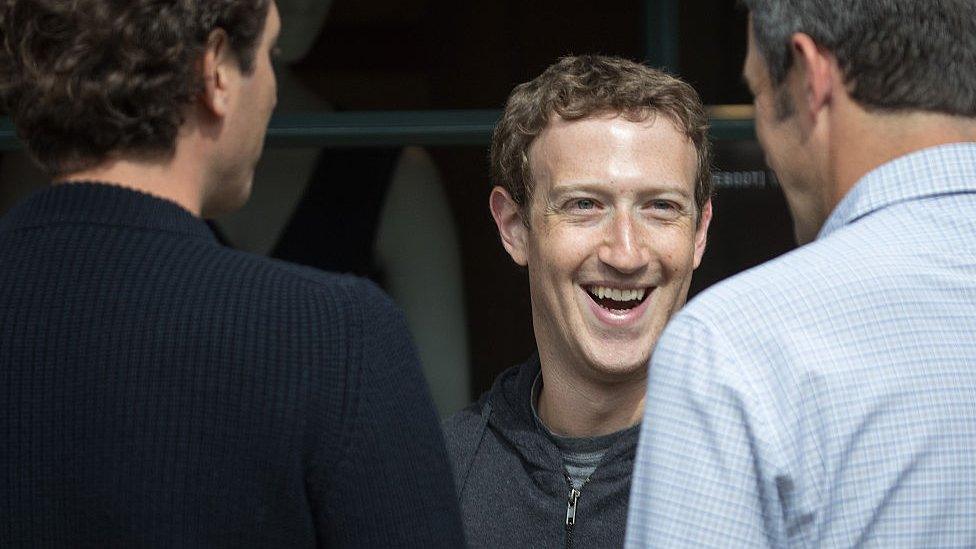
Mr Zuckerberg has distanced himself from reports he is planning a move into politics
AHMED - How important is it that large global businesses play a role in this? You have a role now that some people would say is more important than government and church?
ZUCKERBERG - I don't want to think about it in quite those terms. You know I think that there are places we can help out. Certainly a lot of the challenges people see are economic - around jobs and opportunities. While there are some things I think Facebook can do, that is not the primary focus of this letter and we are not in a unique position to help out with.
But I do think a lot of what people want is a sense of community. I do think that is something that we are in a pretty unique position - to help strengthen existing communities, or help people come together to build new ones. And that is the thing that I feel we do have a responsibility to help out with and do the part that we can. But I don't think that is unique to Facebook or companies or anything. I hope that anyone building an organisation thinks about the positive changes they want to make in the world and thinks about the steps to get there.
I do think we are in a specially important time in the world where a lot of people are questioning this direction of whether connecting the world more is the right thing. This is something I have been talking about and thinking about for years. At last year's F8 developer conference it was [a] big part of the theme of what I spoke about. I do think there is an opportunity for everyone to - if you are upset about the direction things are going in, I hope you don't just sit around and be upset, but you feel urgent about building the long term infrastructure that needs to get built. That way we can bring people together over the coming decades.

Inequality
AHMED - Can you understand the criticism that some people might see you as being so distant from ordinary people's lives? You're incredibly rich and powerful, do you get the idea that some people might think - "This is easy to say if you're Mark Zuckerberg"?
ZUCKERBERG - Perhaps - and this is why we actually need to do it. But [the] theme that I have seen play out over and over is that when you empower people, and give people more power, that is how we make the most progress together. And the success of Facebook is because we empowered people. We gave people a way to share their opinion online that a lot of people didn't have before, and to connect with people that they didn't have before and that is why we have been so successful.
A lot of this is about taking that next step in that theme of empowering people. One of the big sessions that I focused on when I was talking about inclusive communities is how the community standards that we have to reflect the cultural norms that people have around the world, we need to give people more say in determining that. Sitting here in California, I don't think we are going to be best suited to reflect what the cultural norms are [for] everyone around the world. People care about different things and have different lines and how they think about concepts of nudity, profanity, politically charged content or violence there are different areas.
The cultural norms are different in parts of Europe than there are in the Middle-East or Asia. And I am reflecting on [a] mistake that we think we have made, like taking down the terror of war photo for example. And I think upon reflection one can understand where we are coming from - there's child nudity and that's been in the Facebook policy in the beginning, any child nudity you are going to take down immediately. But now as people are sharing more news and people look at the community more for being able to share and access objectionable or newsworthy content even if it is a little objectionable. I think the standards need to shift and be more flexible - that is why we are so focused on giving these tools and that voice directly to people.
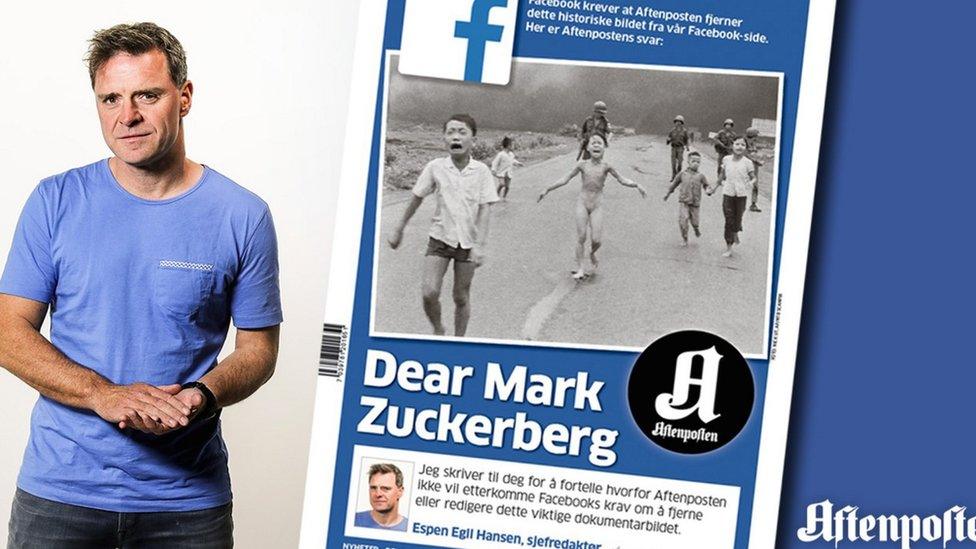
Norwegian newspaper Aftenposten accused Facebook of an "abuse of power" for deleting the iconic image
AHMED - Part of the issue is not just about globalisation but inequality. How much do you think that is part of it, that some people see rich, successful people and there is a huge inequality between them and people living in Pennsylvania or the east end of London?
ZUCKERBERG - I personally care a lot about this and this is why I have pledged to give away 99% of my personal wealth, and the Chan Zuckerberg Initiative is promoting equality. So, my point with this letter isn't to solve all the problems, to set out all the different issues, it is to say hey, if we are going to come together as a global community, one of the things we need is the social infrastructure to do that, we also need the economic infrastructure to give everyone an opportunity and I think there are places that Facebook can contribute there.
We have 65 million small businesses for whom they have the tools to reach their customers that use to only be available to the big guys. And that is something that I am really proud of, that we do and enable people to do. But certainly there is a lot more to do here. And that is a theme that I personally care deeply about.
There are lots of things like connecting people to the internet or making sure everyone has access to education, where I think people underestimate that not only is it the morally right and just thing to make sure that everyone has these opportunities, but everyone's lives will be better off when they do. Because right now we are robbed of the good ideas that half the world that doesn't have access to the internet would be able to contribute, if only they had those tools.

Donald Trump
AHMED - You say that you stand for bringing people together and connecting the world - do you think your new president stands for those values?
ZUCKERBERG - I don't think I am going to speak to that directly, you can talk to him, you can look at what he has said to get a sense of that. The thing that I will say is that a lot of folks will look at this letter through the lens of one or two events, and I really do think this is a broader trend. I have been talking about this for a long time, since before recent elections both across Europe and Asia and the US.
I think the real trend here that I am focused on is that a lot of today's biggest opportunities will come from bringing people together - whether that is spreading prosperity or freedom, or accelerating science, or promoting peace and understanding. A lot of challenges we face today are also entirely global - so fighting climate change or ending terrorism, or ending pandemics or when a civil war in one country leads to a refugee crisis across different continents.
These are inherently global things and require a different level of infrastructure than we've had historically. And that's the thing I am focused on and I do think that a lot of people feel left behind by globalisation; I think it is something that is something that we all need to make sure that our global community works for everyone. And there are lots of different data points around the world that are a reflection of the fact that some people are left behind by the current trend and the current system needs to be adjusted.
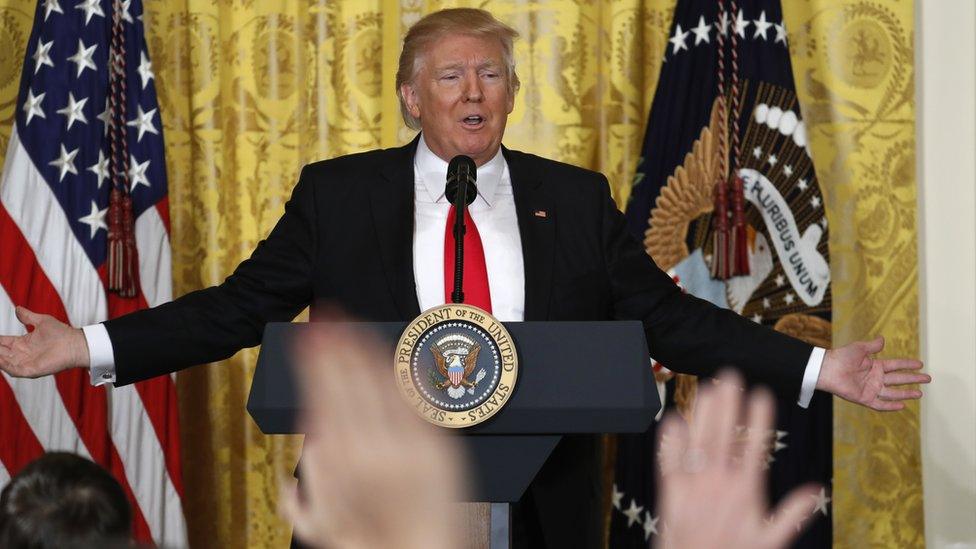
Mark Zuckerberg did not attend a meeting between President Trump and tech chief executives
AHMED - Would you like to meet President Trump?
ZUCKERBERG - I would like that not [to] be the focus of this. I don't really have much comment on that. It somewhat detracts from the focus of what we are trying to do here.

President Zuckerberg?
AHMED - Understood, but this isn't going to dampen speculation that in the future you could be active in politics and have a political career. Is that a possibility at some point?
ZUCKERBERG - I am not doing that now, it's not the plan. The thing I really care about is connecting the world. That is why I wrote this. I think there are unique things I can do at Facebook. I think one of the biggest opportunities is building long term infrastructure. I think people often get caught up in the day to day of different thing that are going on.
There is a saying that Bill Gates has that I have always really loved: "People over estimate what you can get done in two years, and underestimate what you can get done in ten years". I actually think that is really true. I know a lot of people around the world right now are thinking what the best way forward is and I encourage them to, if you're upset don't just feel upset, focus on trying to build the long term infrastructure that is necessary to help move the world in the direction you want it to go in. I think between Facebook and the Chen-Zuckerberg foundation are great vehicles to build this infrastructure.

Filter bubbles
AHMED - Do you worry about some of the language being used in the US and UK with Brexit - that walls are being thrown up?
ZUCKERBERG - I have commented on that, including on the F8 speech I did last year. But I think there are real challenges that need to be dealt with and that is what I hope we acknowledge. There are real challenges and there is real infrastructure that needs to get built to make sure the global community that we are building works for everyone and not just some folks. I also think we need to acknowledge that a lot of tools we have built can be used for all kinds of different things, and our responsibility is to amplify the positive effects and try to mitigate the bad effects of what gets done on the platform. But you know, Facebook is inherently a work in progress on this and we always try to think how we can make it better and better and help our community have the most positive effect on the world and help solve the most problems for everyone.
AHMED - I was interested in what you wrote on polarisation, filter bubbles and sensationalism. That is a real trend - is that a threat to social cohesion and connectedness?
ZUCKERBERG - I certainly think we need a common understanding in order to be able to work together productively. And there are certain forces that work against us. So misinformation is a big deal and that undermines having a common understanding - so does sensationalism, so does polarisation. I think there are things we can do to help create a common understanding. And the good news here is that what our community tells us every day is that they want to see meaningful information, and they want to see true information.
So it is not like we need to have a heavy hand or do anything ourselves, we just need to give the community tools to tell us what is good and what they find to be meaningful content, what they find to be sensational, what they find overblown or click bait and then we can reflect that for them. But the really fundamentally good news here is that people really do want good stuff. And that is the foundation where that gives us the input we need to go and do what people want us to do.
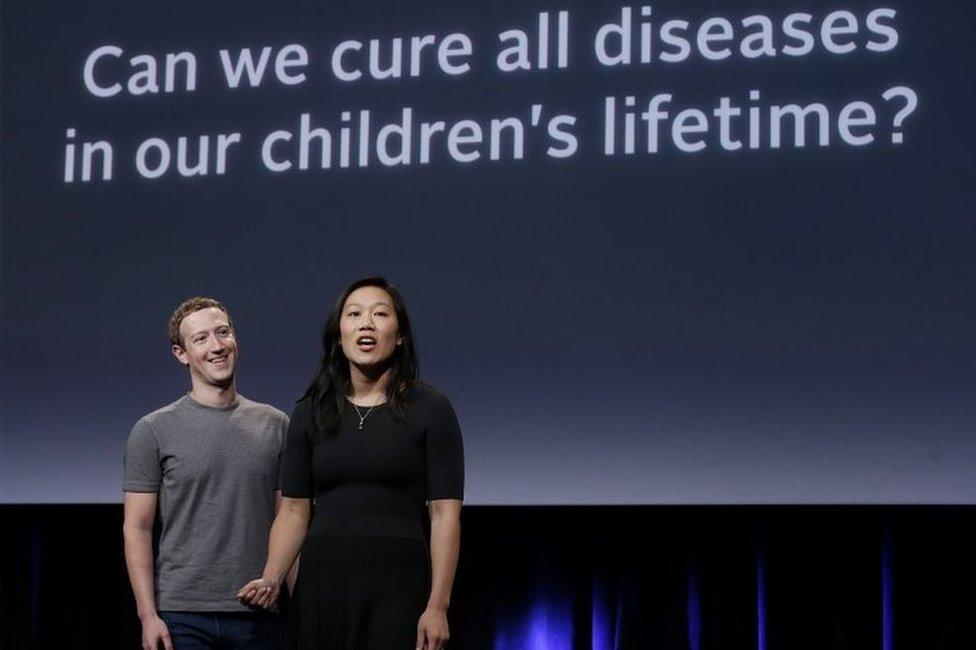
Mr Zuckerberg and his wife, Priscilla Chan, said they aimed to tackle all disease by 2100
AHMED - Are polarisation and filter bubbles the big risk? How has social media amplified those types of risks; this very aggressive world we live in?
ZUCKERBERG - It is certainly something that I am thinking a lot about. It is important to note that polarisation happens in all media, and every organisation from juries and small groups up to big companies - it is a natural thing. But I think we should be mindful of how the medium we are building, what the effects of it are. And social media - and I write this in the letter - is a short form media and that means that there is a good effect of it.
It helps to focus messages and exposes us to more different ideas and perspectives because it is short-form so we can see more different things. But the downside of it is that in some places [it] could over simplify important and complex topics and may push us to have over simplified opinions of them. And I think it is our responsibility to amplify the good effects here and mitigate the negative ones so we can create a community that has a common understanding because that is a fundamental thing for us to move forward on and work together on.
In the letter I mentioned a couple of tools for doing this. One was signals that our community tell us that they share content without having read the post. And we know that if actually reading an article makes you less likely to share it that is a good sign that the headline was sensational and the content wasn't that good and people tell us that. And vice versa by the way, if people are more likely to share something after having read a long form thing that is a really good sign that the content was really interesting and has the kind of depth and nuance that people really want. So those kinds of things give us the tools to try and improve this.
There is also a more fundamental one which is that there is a lot of research that shows we have the best discourse when we connect as whole people rather than just opinions. If I get to know you on the values that we have in common or even the interest that we share, it is a lot easier to have a debate about something that we disagree productively than if we just meet and go head to head on something without understanding our common humanity.
And that is an area that I think Facebook is uniquely positioned to help out in terms of helping to get to know the people that are there. That they are real people that there is all this depth and these friendships and relationships behind them and you can click on someone and see photos if they want to share them or the other facets of their life and get to know them. And I feel like that is potentially a very powerful thing. But this is an area that I am really focused on, I think it is really important.

Good corporate citizen
AHMED - Final question; what responsibilities do you have? Here, issues like taxes, issues like privacy are very important to the people looking at your organisation. Do you understand why issues like that are important in giving you permission to speak about these huge global themes that you touch on? People want to see you take privacy seriously, pay taxes where they are due, it is controversial. How do you respond?
ZUCKERBERG - I think we take all of this stuff really seriously. I think the mission - help connect people with friends and family - is fundamentally important to people's lives. Being a good corporate citizen is really important. We operate in a lot of different countries all around the world. We need to be help build those communities from being good individuals and that is what I am trying to do in my personal philanthropy - is setting an example hopefully for other entrepreneurs who will build things in the future for how you should give back to the community and to the world.
I care deeply about all of this, and it is a work in progress. We haven't been doing this for very long and we have a lot of years ahead hopefully and a lot of things that we haven't gotten to yet I don't necessarily view them as complete. There are a lot of areas that I know we need to improve, and I appreciate the criticism and feedback and hope we can continue to do better on them.
For this next phase I do think giving people more power is really the thing that we are all about, it has been the thing we have always been about, it has been the opening of our mission statement - give people the power to share and make the world more open and connected. A lot of what we are talking about here is giving people the power to build communities and that I think is hopefully something that we can all get behind.
- Published28 January 2017
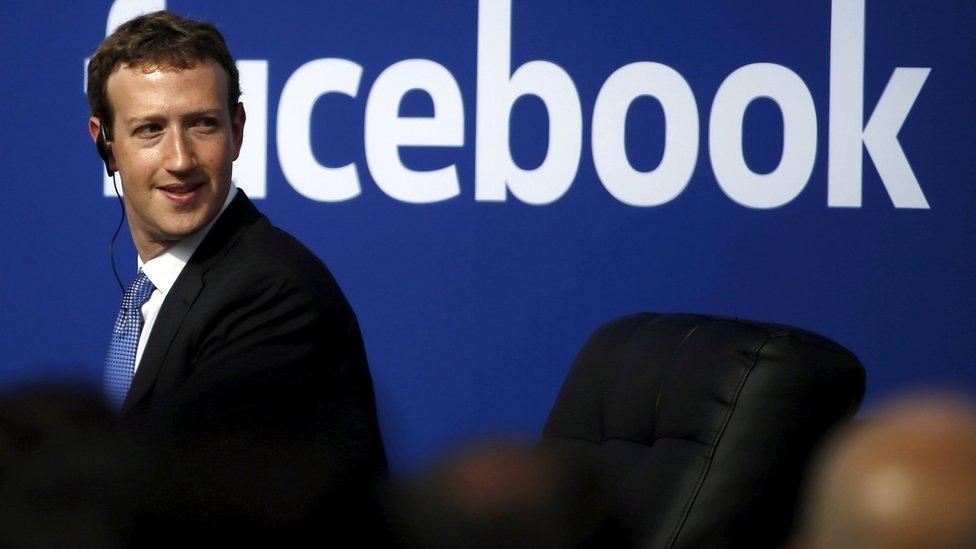
- Published3 January 2017
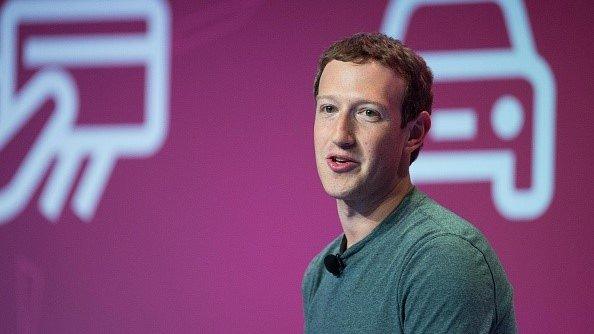
- Published19 November 2016
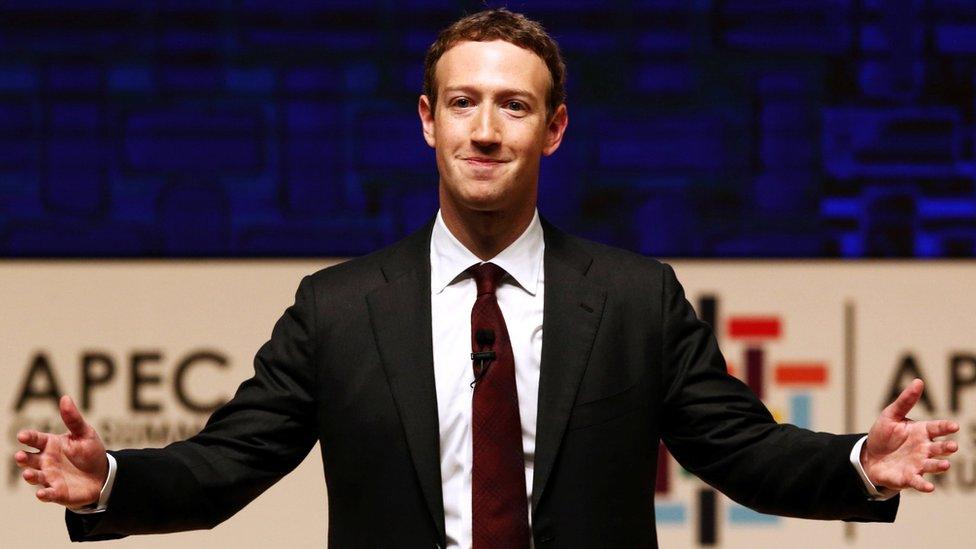
- Published11 November 2016
- Published21 September 2016
